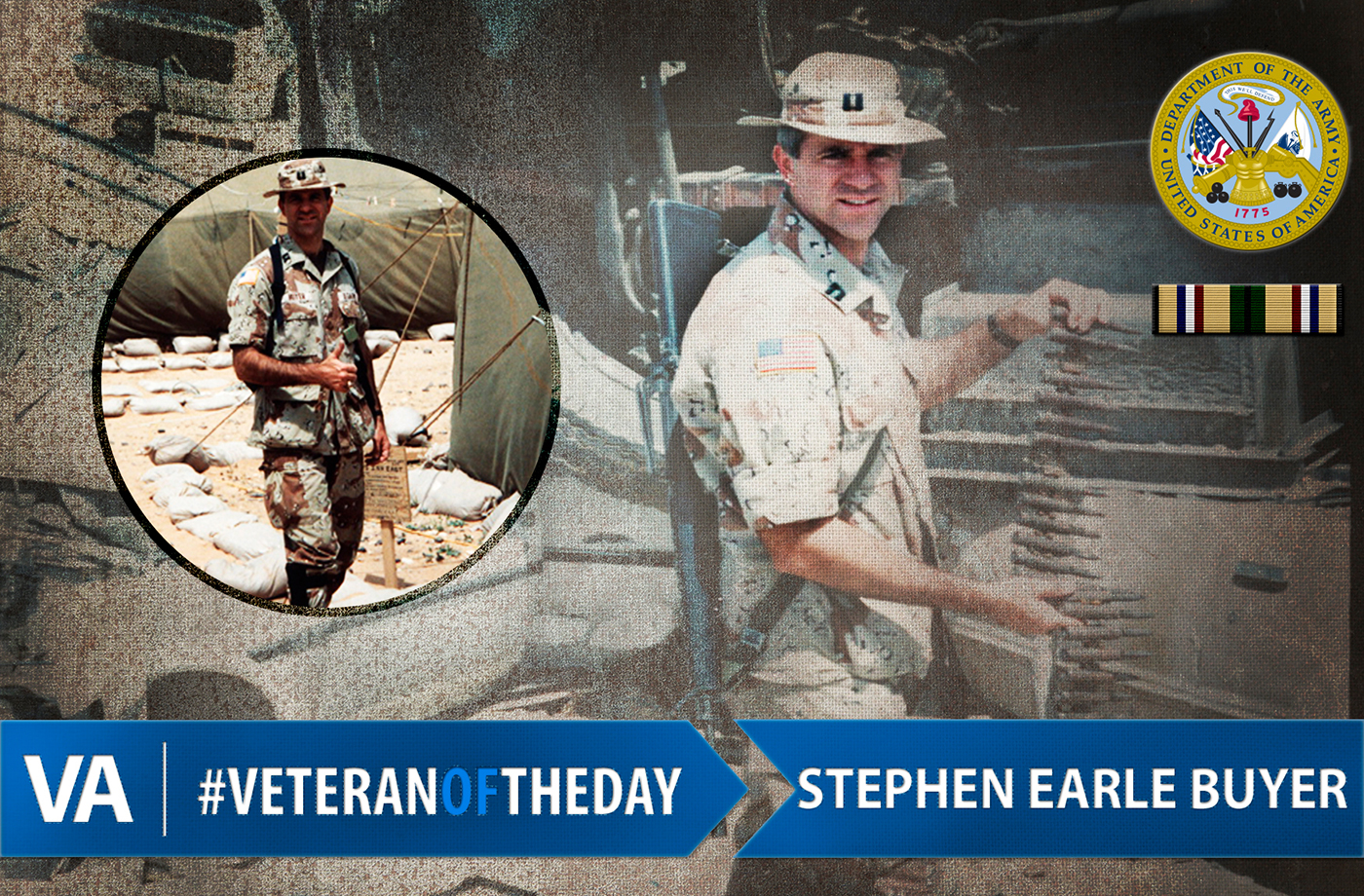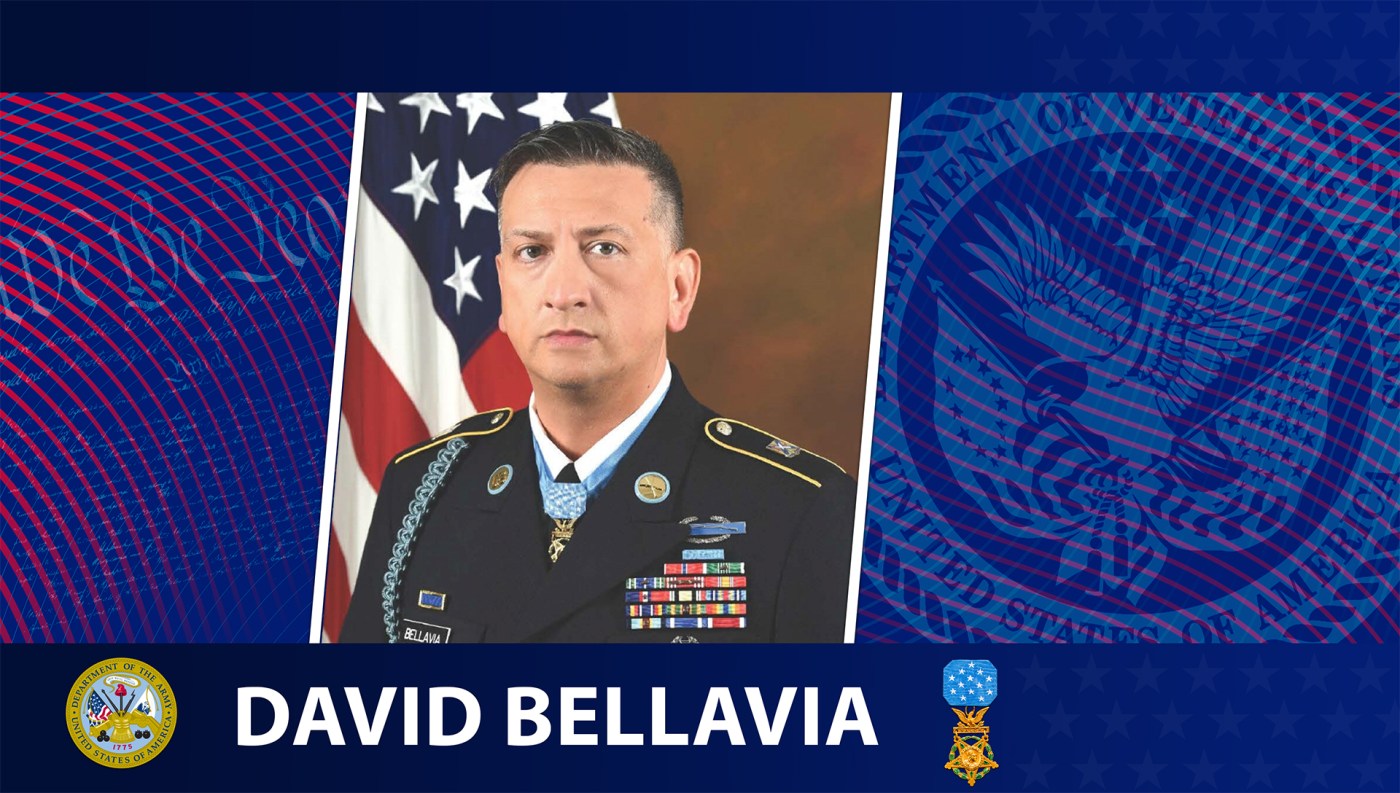Today’s #VeteranOfTheDay is Army Veteran Stephen Earle Buyer. Stephen served during the Persian Gulf War.
Stephen was born in Rensselaer, Indiana, in 1958, and grew up along the banks of the Tippecanoe River. When he was younger, Stephen and his brother went to summer camp at The Citadel Military College of South Carolina.
Stephen’s family had a long history of military service. “We have a family tree and it gets back to General Nathanael Greene, the Revolution, and I have both sides of my family fought in the Civil War, for the South and in the North, and we all know where they were and what battles,” Stephen said in an interview with Veterans History Project. “There’s a lot of pride in our family over our military service.”
So in 1976, when he graduated from high school, Stephen entered The Citadel, The Military College of South Carolina. At The Citadel, he became Master of Revels and Summerall Guard, and while he majored in business administration, Stephen chose to be a Medical Service Corps officer. After completing his officer’s basic course in San Antonio, Texas, Stephen obtained a law degree from Valparaiso University School of Law while staying in the reserves.
Following law school, Stephen transferred to the Judge Advocate General Corps and went on active duty from 1984 to 1987. In the fall of 1990, Stephen was again called to active duty on three days notice to participate in Operation Desert Storm. During Desert Storm, he served as an Operational Law Judge Advocate, providing legal counsel to service units in combat zone. He also provided advice drawing from the Geneva Convention related to the treatment of prisoners of war and refugees.
“Our forces, as they swung through southern Iraq, were a human vacuum cleaner.” According to Stephen, the combat units took blind men, sheepherders, women and children. “Everything ended up in the pipeline of the prisoners…and now [it] was up to me as a lawyer to sort them out.”
Stephen made sure the prisoners’ latrines weren’t facing Mecca, and that they had food, baths, proper clothing, cigarettes and Madonna. “They just wanted to listen to Madonna. So we rigged up and piped in Madonna music, all of her popular music.”
Stephen returned home in June 1991. The next November, he was elected to the U.S. House of Representative. He served as U.S. Representative for Indiana’s 5th district from 1992-2003, and U.S. Representative for Indiana’s 4th district from 2003-2011.
Thank you for your service, Stephen!
Nominate a Veteran for #VeteranOfTheDay
Do you want to light up the face of a special Veteran? Have you been wondering how to tell your Veteran they are special to you? You’re in luck! VA’s #VeteranOfTheDay social media feature is an opportunity to highlight your Veteran and his/her service.
It’s easy to nominate a Veteran. All it takes is an email to newmedia@va.gov with as much of the information as you can put together with some good photos. Visit our blog post about nominating for how to create the best submission.
Veterans History Project
This #VeteranOfTheDay profile was created with interviews submitted to the Veterans History Project. The project collects, preserves, and makes accessible the personal accounts of American war Veterans so that future generations may hear directly from veterans and better understand the realities of war. Find out more at http://www.loc.gov/vets/.
Graphic created by Kierra Willis: Kierra Willis is a graphic communication major at the University of Maryland University College. She currently has an AAS in graphic design and visual communications.
Topics in this story
More Stories
This week’s Honoring Veterans Spotlight honors the service of Army Veteran David Bellavia, who received a Medal of Honor from the Iraq War’s deadliest operation, the Second Battle of Fallujah.
This week’s Honoring Veterans Spotlight honors the service of Army Veteran Scotty Hasting, who served in Afghanistan.
This week’s Honoring Veterans Spotlight honors the service of Army Veteran Roy Sheldon, who served in 97th General Hospital in Frankfurt, Germany.







I thank Steve for his service to our country.
But when it came to serving constituents during his time in Washington he was just the typical partisan politician (republican) . He was an active
part of the Washington gridlock and like now didn’t get anything done unless it was naming post offices or having his hands in the pockets of lobbyists and special interests.